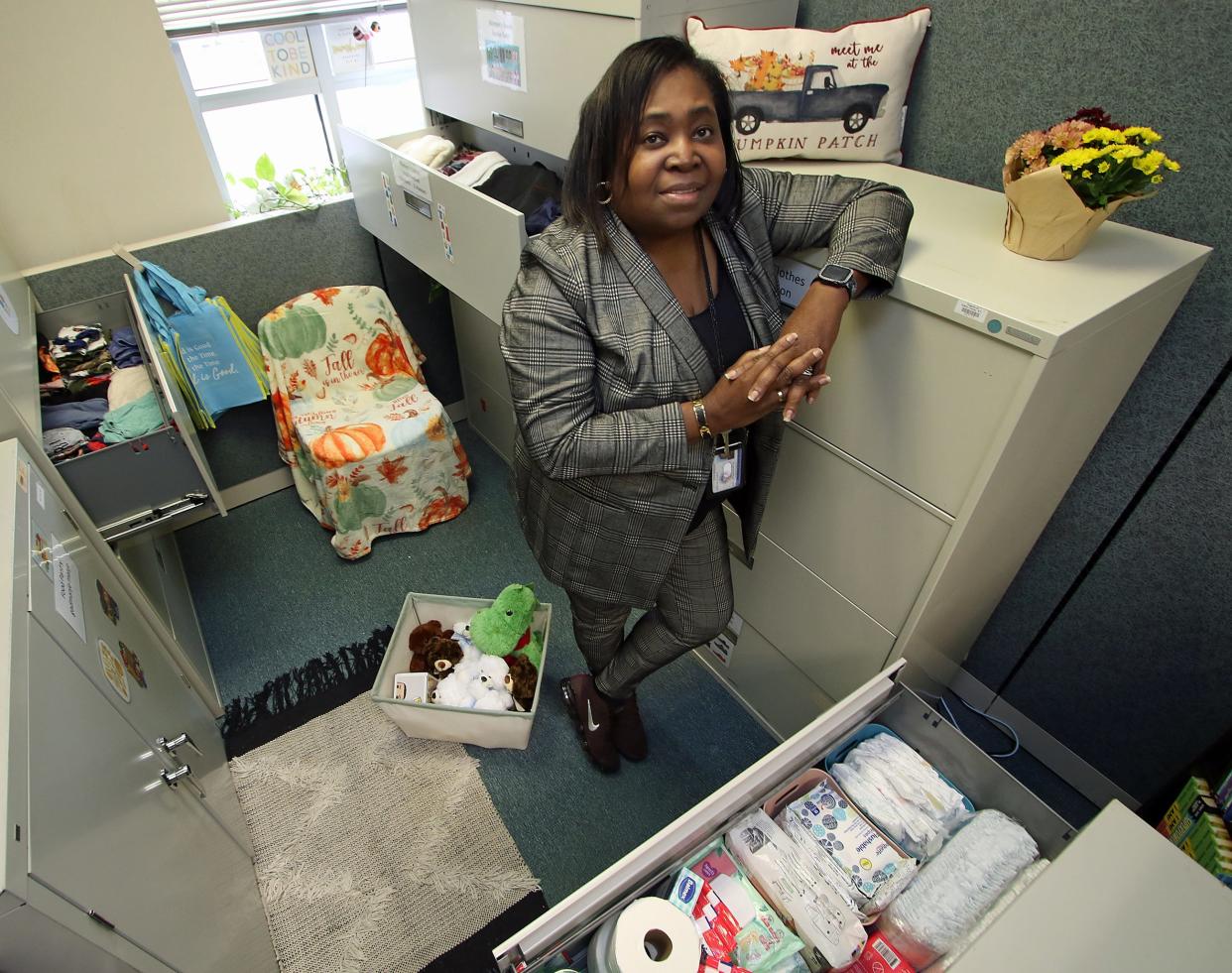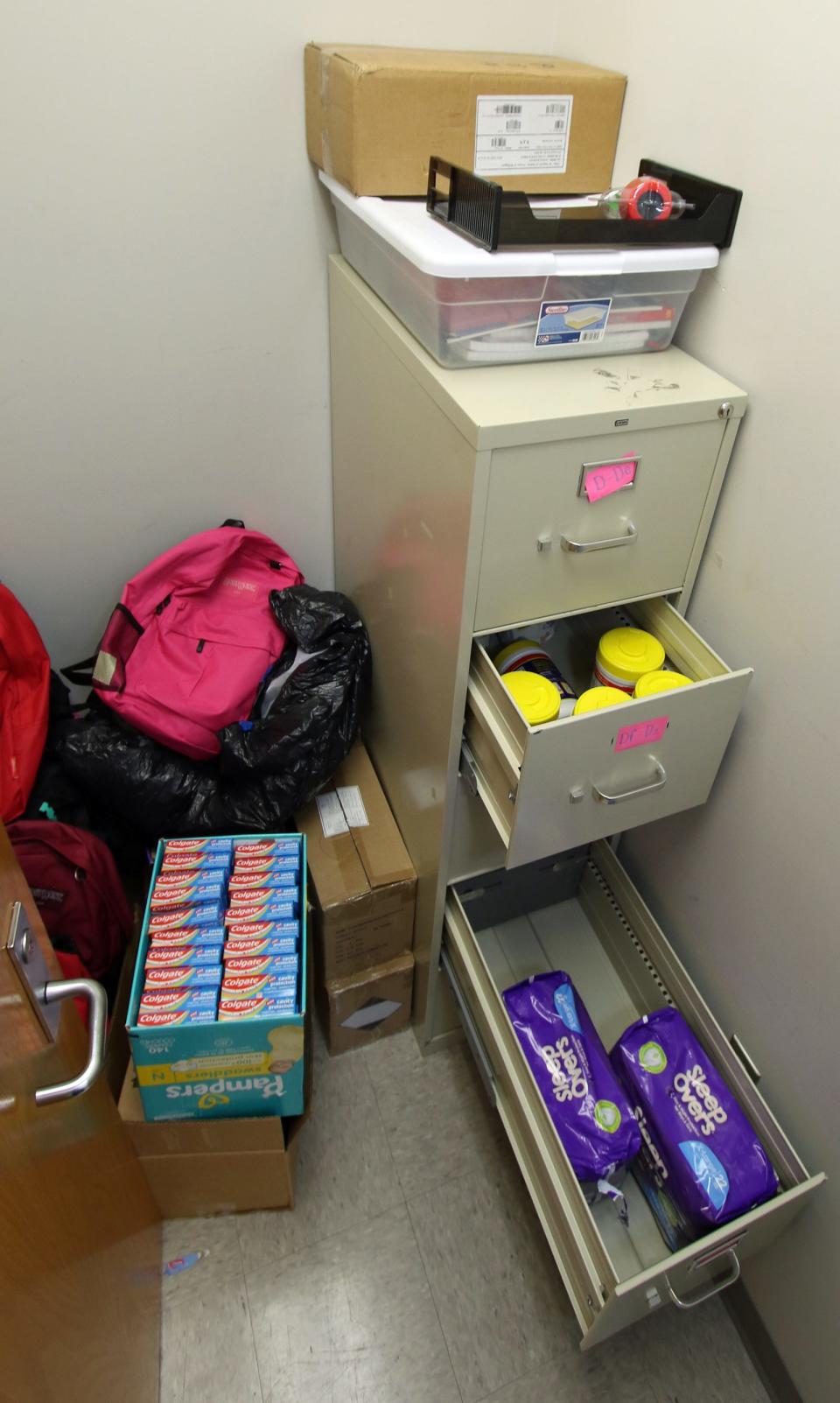Gaston County sees an influx of Haitian refugees, helps them find resources

Since the start of the pandemic in 2020, the number of Haitian refugees seeking asylum in Gaston County has increased significantly, according to Bernadette McBryde-Brown, DSS job placement supervisor and SEALs team coordinator.
The SEALs Family Assistance Team at Gaston County’s Department of Social Services won an award in August for their work with the county’s growing Haitian refugee population.
This work includes everything from providing basic necessities to teaching them how to use the bus system.
First contact
“They would show up at the DSS building and wouldn’t have shoes,” McBryde-Brown said. “They had left their family, they’re really on the run.”
When they first began coming in, McBryde-Brown did not know a lot about the situation unfolding in Haiti, she said.
However, through an interpreter speaking on their behalf, McBryde-Brown would come to learn that, “The country is being run by gangs,” she said.
“They’re being kidnapped, the president has been killed,” McBryde-Brown said among a list of other reasons the refugees are fleeing Haiti.
McBryde-Brown shared the story of a man who came to them for help.
“He was shot,” she said. “You could see where it happened.”
According to McBryde-Brown, the man shared with the translator that he was fleeing gang violence, and rather than leading them to his home, where his family could get hurt, he decided to leave the country.
“He built a raft, and had to travel by water and by land,” McBryde-Brown said.
Gaston County DSS continued to see the numbers of refugees seeking aid on the rise.
The SEALs team at DSS found that the vast majority of refugees coming to DSS for assistance needed basic necessities.
“They are very prideful people and didn’t want to say what they needed,” she said. “They bleed like you and I bleed, they had needs.”

Gaston County SEALs team
“When people ask me to tell them why I call my team SEALs: They are SEALs because they are organized, trained, and equipped to conduct a variety of special operations and missions in all facets of community environments,” McBryde-Brown said. “This is on top of their day-to-day job which is expected to be stellar without cutting any corners. I have a team that goes above and beyond every day for the citizens of Gaston County.”
In response to the glaring needs of the refugee population, DSS’s SEALs team organized a place where they could come to get hygienic products, clothes and food.
Having access to basic needs like food and hygiene was critical, but the SEALs team also noticed a need for education to help them navigate the city, according to McBryde-Brown.
“They walk nearly everywhere they go,” she said.
One of the first lessons they focus on sharing with the refugee population is how to use the public transportation systems in Gaston County.
Along with learning to use the public transportation system, the refugees also learn English, to help them navigate using street signs, but also to help them communicate in general.
“I can’t imagine coming to a country and not knowing how to speak the language,” McBryde-Brown said.
Literacy lessons
The Gaston Literacy Council has reported increased numbers of English as a Second Language learners this year.
“The ESL increase is 99.9% needed by the refugees,” McBryde-Brown said.
According to Linda McConnell, executive director of the Gaston Literacy Council, numbers of ESL learners have, “tripled probably, what we’ve had in the past.”
In the months of July, August, and September this year, the council has started working with 120 ESL learners, which is just nine students shy of the number of learners they worked with for the entire year of 2022, McConnell said.
In order to accommodate the new English learners, DSS and the Literacy Council have teamed up to host what McBryde-Brown calls the, “American Dream Academy,” an ESL class that meets on the first and third Saturday of every month.
The class is currently full and has a waitlist of 45 students.
McConnell expects that requests for ESL classes will continue to increase as the election year approaches.

According to McConnell, many non-English speaking refugees and immigrants take on ESL near election time so they can take the citizenship test and hopefully gain citizenship in time to vote.
The recent increases and anticipated future increases have created needs for ESL instructors at the Gaston Literacy Council.
“We’re actually looking for instructors,” McConnell said.
How to help
If you want to know how you can help, ask yourself, what do you need,” McBryde-Brown said.
DSS is currently accepting donations of clothing, food, and hygienic products, according to McBryde-Brown.
Anyone interested in donating can contact McBryde-Brown’s office at 704-862-7909. Anyone interested in becoming an ESL instructor for the Gaston Literacy Council can reach out to them at gastonliteracy.org.
This article originally appeared on The Gaston Gazette: Gaston County helps Haitian refugees learn English and find resources
